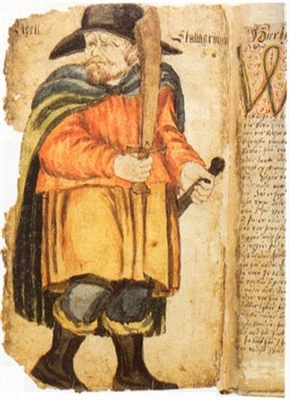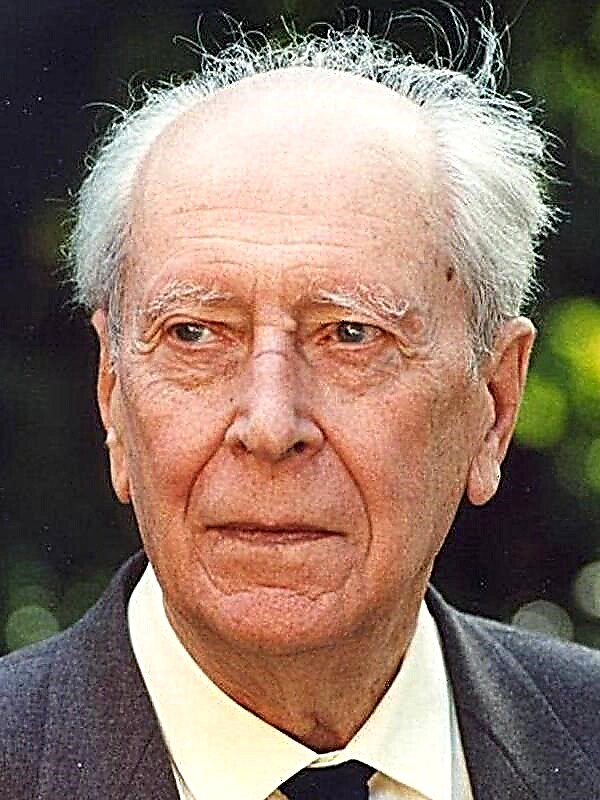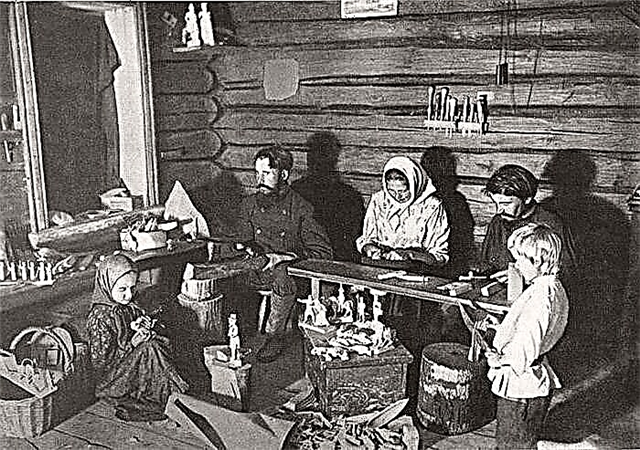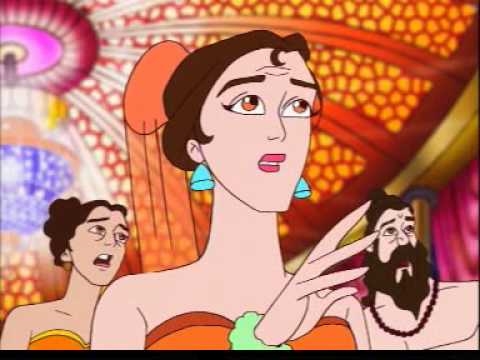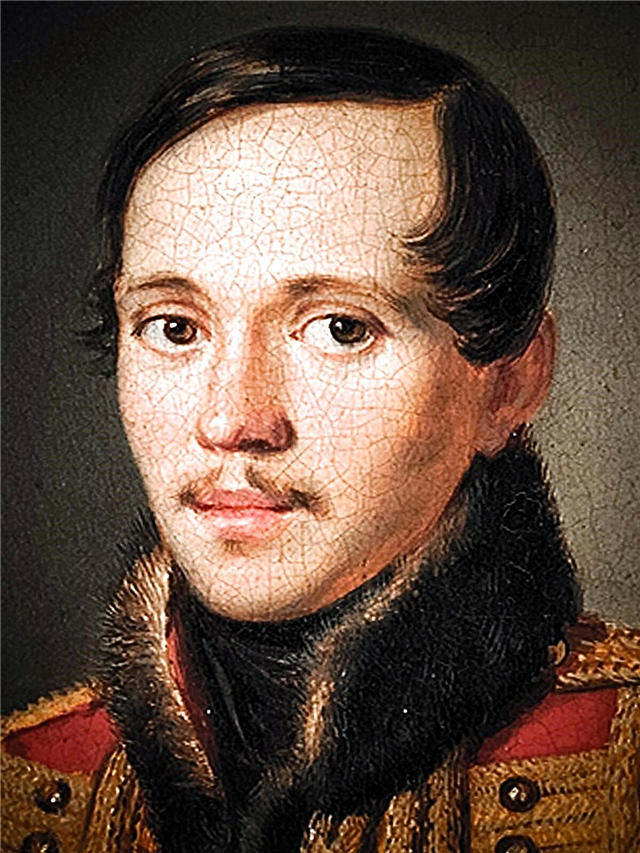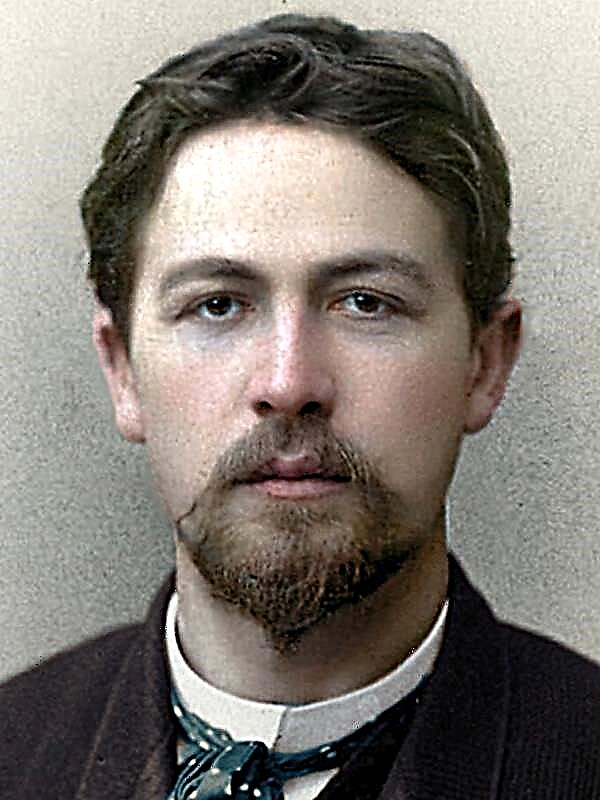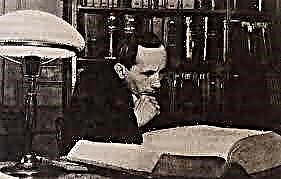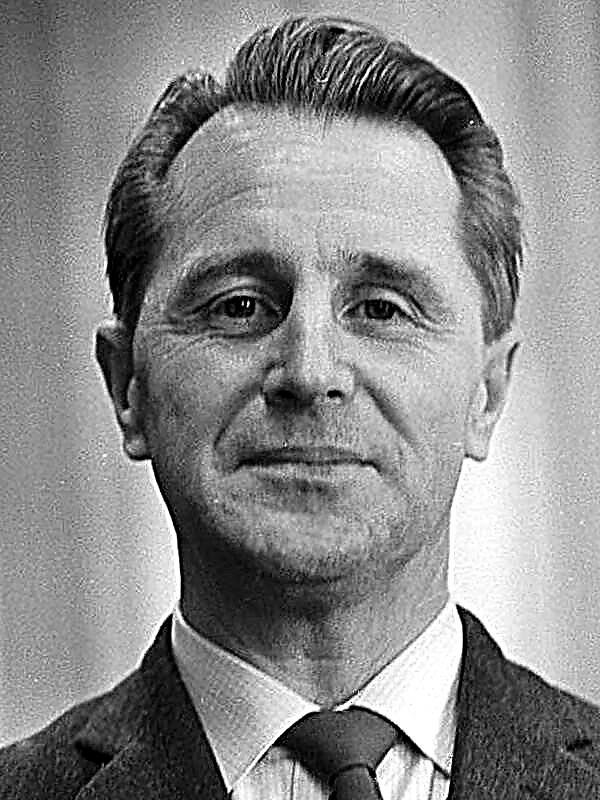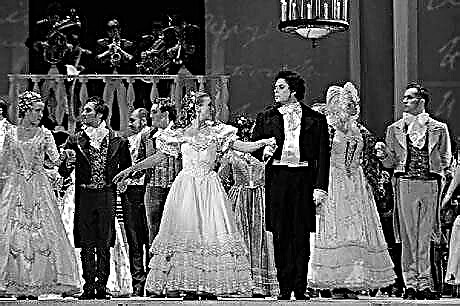Maxim Gorky is a great Russian prose writer. His real name is Alexei Maksimovich Peshkov, the writer took his pseudonym in memory of his father - Maxim Savvatevich. Gorky is the author of famous works, in the Soviet Union he was the most published writer. He is considered the founder of socialist realism. Gorky's life and work are filled with many events, the writer had a rich, versatile, partly tragic fate. Next, we will analyze in detail the most important aspects of the biography of the recognized genius of the 20th century.
Birth and childhood
Alexey Peshkov was born in 1868 in Nizhny Novgorod, the boy was baptized according to the Orthodox rite in infancy. At the age of three, Alexei develops cholera, his father, Maxim Savvatevich Peshkov, becomes infected by his illness and dies. Alexei’s mother, Varvara Vasilievna, suffered a no less tragic fate - after her husband’s death, she marries a second time, but soon dies of consumption.
Alexei, having lost his parents early, lived with his grandfather and grandmother. The boy barely remembered his father, but because of the stories of his grandfather, he greatly appreciated the memory of dad. The future writer at the age of 11 had to work: a baker, an “errand boy”, etc. Peshkov also studied at a parish school, but left due to illness. At school, teachers considered Lesha a difficult child, from a very early age he did not believe in God, considering himself a convinced atheist. Another street for Gorky was the street, he talked a lot with street children, which in the future will affect the theme of his work.
And although Gorky never received a secondary education, he read a lot, had an incredible memory and a moving mind. He was well acquainted with the serious works of many philosophers; he read Nietzsche, Schopenhauer, Hartmann, and many others. And yet, according to biographers, up to 30 years Maxim Gorky wrote with a lot of mistakes, which his wife carefully corrected.
Youth and education
In 1884, Alexei tried to enter the university, but to no avail, because he never finished school. The guy had to work, and in the service he communicates with revolutionary young people, gets acquainted with the works of Karl Marx. In 1887, Peshkov’s grandmother and grandfather die, so he suffers from prolonged depression.
In 1888, Alexei made a feasible contribution to the revolutionary movement and fell under arrest. The police begin to closely monitor the young rebel. Peshkov still has to interrupt with hard work.
Then he was tempted to create an agricultural colony of the Tolstoy type and even tried to meet with Tolstoy himself, but at that time there were a huge number of people who wanted to talk with him, and Peshkov could not meet with Lev Nikolaevich. He is sent back to Nizhny Novgorod.
History of success
In 1891, Peshkov went on a spontaneous journey through Russia, during this journey with Alexei there are a lot of unusual stories that he is strongly advised to write down. This is how the story "Makar Chudra", Biographers often consider this work as the first real work of the writer, because it was signed by a pseudonym - Maxim Gorky. From this begins the promising creative path of young talent.
This is followed by several publications in literary magazines, the writer is slowly but surely gaining momentum. He quickly learns journalism. Work in the editorial office allows the creator to earn bread by intellectual labor. For two and a half years, Gorky has published about five hundred articles. At the same time, Gorky's new work entitled “Chelkash". This story brings fame to the writer.
Creative way
In 1898, the first two volumes of the works of Maxim Gorky were published. Publishers took a chance and printed books in a large circulation, but the risk was justified - the works were quickly sold out. Gorky’s fame is rapidly spreading throughout the country.
In 1899, several more works of the writer were published. His works were first translated into foreign languages. For any writer, this is a very high level of recognition.
A year later, Gorky met with the prose master Chekhov. At the same time, Alexei finally fulfills his old dream - he meets Tolstoy. Indeed, now Alexei is not just an ambitious young man, but a recognized writer.
During this period of time, the author often acquired problems with the law due to his revolutionary activities, which in no way affects his growing popularity. Gorky first turns to drama and is undoubtedly successful in this complex genre.
In 1902, Gorky was elected to the academicians of the Imperial Academy of Sciences, but the writer is deprived of this status incredibly rapidly because of his anti-state activities. This case becomes quite famous, which creates a halo around the writer. Now many famous figures want to get acquainted with a talented creator.
In 1902-1903, the peak of Gorky's popularity came. He becomes a real trendsetter in literature, establishes the course of "social realism", every word of the author is watched by the whole country. It even comes to the appearance of epigones, who are trying to copy their idol in everything. Such figures were ironically called "podmaksimki." But the writer does not bathe in the glory, he continues to work fruitfully. During this period, he completed the play “At the Bottom” and began work on the story “Mother”. In 1904-1905, several more plays saw the light, these are: Barbarians, Summer Residents, Children of the Sun.
From 1902 to 1921, Gorky successfully engaged in publishing. His publishing house, Knowledge, has opened up promising unknown writers to readers. He had a delicate taste and carefully selected the authors to be printed. In fact, Peshkov is engaged in educational activities, he is again at the forefront, his publishing house is the most popular in Russia, but now he leads many other authors. The publishing house publishes large editions of joint almanacs and collections, Gorky and his colleagues incredibly quickly move forward the heavy literary process.
Two emigrations and one political struggle
First departure
In 1906, Gorky was forced to emigrate to the United States, his native state mercilessly persecuted the writer for his political views and activities. “Knowledge” quickly disintegrates without its ideological founder. It is worth noting that emigration did not affect the author’s fame at all, his activities continued to be actively discussed in Russia, and the writers were very warmly welcomed in the USA.
Gorky, in spite of everything, continues to write. He completes the novel Mother, and also writes a new play, Enemies. In 1906, the writer was forced to move to Italy due to tuberculosis. There he continues to work in his large house on Capri. He is working on a trilogy “The Town of Okurov.”
In the same place, the creator completes his new work entitled “Confession,” where he points out his differences with the position of Lenin. In 1908, the author completed two works: the play "The Last" and the novel "The Life of an Unnecessary Person". In the next four years, several more works will be published: The Town of Okurov, The Life of Matvey Kozhemyakin, as well as a series of short stories The Tales of Italy.
The writer is experiencing a mental crisis, events in the world are heating up, but this does not prevent Gorky from continuing to do his whole life’s business. It is also important to note that "Tales of Italy" made a good impression on workers in Russia, this instantly brought the writer closer to the future power of the revolution, and Lenin himself did not hide his pleasure from reading the stories.
Return
In 1913, Gorky returned home. The writer again turns to publishing. In the years 1912-1916, Alexei Maksimovich published a collection of "In Russia", the novel "Childhood" and "In People."
In 1919, Gorky organized the publishing house World Literature. The goal is the same as ten years ago - he publishes classical literature in the best translations to educate the Russian reader. This activity can hardly be called creativity, but it is an additional confirmation of the author's boundless love for literature.
Second departure
In 1921, the writer left his native country again. In exile, he takes up a pen and writes works: “On the Russian Peasantry”, “Notes from a Diary”, “My Universities”, as well as a collection of short stories. Italy's favorable atmosphere helps him focus on writing. In 1925, the author, continuing his treatment, releases a new novel, The Artamonov Case.
In 1928, the writer turns 60 years old. For many, it is already history, a monument. Alexei Maksimovich is forbidden to publish news in the USSR. In Europe, exhibitions dedicated to the writer are held; his plays are regularly staged in theaters. But Gorky personally did not take part in these events.
By the 1930s, the author, upon invitation, visited the USSR several times, where he was warmly received and the changes in the country were shown to him. Two years later, he finally returned to the USSR.
Personal life
The family life of Maxim Gorky to this day causes numerous disputes among biographers. Some facts from this life really cause genuine interest.
- 1889 Young Alexey Peshkov experienced strong love feelings for the daughter of the station head. He even asked the boss for the hand of his daughter, but the strict father resolutely refused him this. The young writer remembered this love feeling for a long time, after 10 years Gorky, a successful author and married man, fondly recalls his youthful feelings in a letter to that woman.
- 1893. At the dawn of his writing career, a twenty-five-year-old writer enters into an unmarried marriage with midwife Olga Kamenskaya. She also became the prototype of the heroine in Gorky's late story "On First Love" (1922). Before marriage, young people had known each other for four years, Kamenskaya was nine years older than Peshkov, before that she was already married, she had a child from her first marriage. The end of this relationship may seem comical to someone: Gorky read aloud his new work, “The Old Woman Izergil,” but when he looked up, he saw that Kamenskaya fell asleep.
- 1896 Gorky is married to Catherine Volzhina. She was 8 years younger than her husband. For a modest girl working as a proofreader, the chosen one seemed “demigod”, and the writer himself was rather condescending to his passion. In the same year he was diagnosed with tuberculosis. His wife accompanies him on medical trips and strongly supports him. She became the mother of his children. On July 21, the first-born was born, who, without much thought, was called Maxim. Four years later, a second child is born - the girl Katya.
- 1902 Gorky with his wife and two children lives in an apartment in Nizhny Novgorod. At that time, the writer received excellent fees, the family was in abundance. In the evenings, the couple received eminent guests, this period in the life of the Peshkovs seems idyllic. But there is one thing but ...
- 1900. Two years earlier, Gorky met with the Moscow Art Theater actress Maria Andreeva. She was married, and the author sometimes spent time with a couple. The rapprochement between man and woman was quite romantic: she played Natasha in the Gorky play “At the Bottom”, and Alexey Maksimovich was amazed at her genuine play. These relations greatly influenced the further formation of the writer, because of the influence of his beloved, he joined the Leninist party.
- 1903 Andreeva abandons her former family and becomes Gorky's secretary, who does the same: immediately leaves his wife and children and leaves Nizhny Novgorod.
- 1904 Political struggle tears Russia apart. But the writer’s family life, on the contrary, is getting better, with Andreeva they live peacefully in a holiday village near St. Petersburg. Life with Maria during this period positively affects the writer: he is calm, inspired and can write. Lovers often visited the neighboring estate, in which the famous artist Ilya Repin lived. Then Gorky and Andreeva go to Riga, after visiting healing springs. This life stage can be called one of the most harmonious and happy.
- 1906 Gorky and his common-law wife visit the United States. There, the writer learns that his youngest daughter fell ill with meningitis and died. Gorky consoles his wife in a letter, later the couple agreed to leave, but did not officially divorce.
- 1906 In February, Andreeva and Gorky set off on a kind of romantic journey on behalf of Lenin. After the Finnish festival, they hastily board the ship to America. There they collect donations for a political coup.
- 1906-1912. The writer again suffers from tuberculosis, he is forced to leave for Italy. Mary rides with him. The woman was independently engaged in housework and was always not far from the writer's office to help him at any time. Andreeva also carefully translated for her husband, who did not know foreign languages, various news articles. In the evenings, the couple went out for a walk. The fate of the great writer could have been completely different if this woman had not appeared in his life.
- 1912 Gorky and Andreeva often traveled together, this time after a long stay in Italy, the couple went to Paris. There Gorky meets Lenin again.
- 1914. Travelers return to Russia and settle in a large apartment in St. Petersburg. In their new house there were exactly 11 rooms. Gorky was famous for his hospitality all his life; he always helped people to get out of a difficult financial situation. Thus, about thirty people settled in the writer’s apartment, some of them were ordinary engrafters.
- It is known that Maria Brudberg lived in the next room with Gorky. She appeared in the writer's apartment under interesting circumstances: she brought some papers, but suddenly fainted from hunger. The hosts fed the guest and offered to stay in one of the rooms. After a while, the girl took possession of the heart of the owner of the house.
- The atmosphere in Gorky's St. Petersburg apartment was very unusual. Every day, crowds of people came to the writer with various complaints, in the evening he was visited by famous artists. Most of the time, guests drank alcohol, ate a lot, played cards for money, arranged readings of pornographic novels, and with great love discussed the work of the Marquis de Sade. In this period, Andreeva and Gorky are, as if on different sides, each of them leads a separate life.
- 1919. Revolutions thundered in Russia, they seriously shook the writer's inner state, a period of apathy and disharmony sets in. In the same year there is already a clear cooling in relations with Andreeva. This was influenced by their political differences, which over time only intensified. The main reason for separation is considered to be a short-term relationship between Gorky and a certain Varvara Shaikevich.
- 1921 Gorky cannot tolerate the state of affairs in the country; he enters into a confrontation with Lenin. The author at this time is very lonely, he opposes everyone without any help from other people. The result was the forced emigration of the writer.
- Alexei Maksimovich was sent to Germany, and then sent to Andreev to supervise Gorky, Maria should carefully monitor the activities of her husband. She takes with her lover - Peter Kryuchkov, who becomes editor at the publishing house "International Book". Thus, Kryuchkov became a direct intermediary between Gorky and his literary publications.
- 1928After isolation, the writer visits the USSR and decides to stay in the house of Ekaterina Pavlovna Peshkova, her legal wife, whom she has not seen for many years.
- 1934 Alexei Maksimovich becomes more and more detached, the writer experiences incredible mental fatigue after treacherous expulsions, he feels that his personal struggle for peace is lost. This year, his first-born, Maxim, dies. At that moment, the author spoke enthusiastically with Speransky about immortality, and suddenly he was informed about the death of his son. Father took note of this and, with the same animation, continued his nightly conversation.
At the end of his life, the author closed himself, finding the only salvation - in creativity. Gorky lived a difficult life, full of hardships, maybe he was happy with Andreeva in Capri, or maybe in the first year of his life with his legal wife, or maybe he was not happy at all. Even analyzing Gorky’s life from the point of view of the ordinary, human, it turns out that for Alexey Maksimovich literature was always in the first place.
Attitude to power
Throughout his life, Maxim Gorky had a clear and reasoned political position. From his youth, the writer was engaged in social and political activities. He was not afraid of arrests and counts, deportations and prisons. The author has always honestly and directly stated his views on the future of the whole world and his native country.
Was Gorky lucky to be born in such unstable times, was he supposed to see revolutions and the subsequent injustices and atrocities? Each of us must answer this question ourselves. And in this chapter we will dwell on the political views of the writer, trace their evolution and, of course, examine the difficult relationship between Gorky and the “old” and “new” authorities.
An important element in understanding the writer's political position can be his own self-determination. From an early age, the future writer called himself a man who "came to the world in order to disagree." And in later years, the world-famous creator called himself "the eternal revolutionary."
To the royal
Already in his youth, Peshkov had a long-running conflict with the government of Tsarist Russia. He is constantly being arrested, deported, and again arrested for contacts with various circles. He is constantly under police surveillance. The tsar even opposes his admission to the Academy of Sciences, and the writer loses his privileged place.
- 1905. The aggressive attacks on the writer by the authorities continue. Gorky is again arrested for the revolutionary proclamation, this time exiled to the Peter and Paul Fortress, where he has to stay in solitary confinement. The prisoner calmly endured adversities of this kind, he was not going to retreat.
- 1906 The government tightens penalties, and Gorky has no choice - he becomes a political emigrant. Around the same years, the author met with Lenin, and soon two thinkers would meet again, but under different circumstances. At this stage, the creator believes in revolution, the main task he considers the overthrow of the current regime.
- 1908. This year, Gorky publishes the novel Confession. This is a very important event, since with this example we can observe all the sincerity of an experienced writer. In his work, he does not hesitate to criticize Lenin and express his disagreement about specific allegations. The author is an idealist, for him there are no parties, he has his own opinion, which he broadcasts to the masses. Perhaps that is why the whole life of the writer was fraught with attacks by the authorities, whatever it may be.
To the Soviet
- 1917-1919 After two revolutions that were not accepted by Gorky, the writer is engaged in human rights activities, he vehemently criticizes the activities of the Bolsheviks. Aleksey Maksimovich did not understand the cruelty of the repressions and defended the intelligentsia with all his might. In the end, he resorts to the word - and creates the newspaper New Life. In it, the writer continues to criticize only the emerging authority, he draws attention to the huge problems in the country, which the authorities for some reason are in no hurry to eliminate. Gorky again shows himself as an honest man. He is not ready to agree, he is not ready to endure, he bluntly criticizes in his articles the people with whom he walked shoulder to shoulder several years ago - against the monarchical regime. He did not need change for the sake of change, his goal was to make the world cleaner and better, such is the nature of Alexei Maximovich. On July 29, 1918, the New Life newspaper was instantly closed. For all Gorky’s struggle for a better world, people come to power who, by their methods, are no different from previous rulers. The writer is again taken "by pencil", the views of the creator once again do not correspond to the position of those in power.
- In 1918, Gorky again establishes communication with Lenin. The writer is trying to find support in a reasonable leader, but as a result of the debate, Lenin, who respected the writer's previous merits, neatly hints that it is better for the author to leave the country for a while. And again - persecution and emigration.
- Gorky is in Germany in 1921, every step he takes is closely watched. The writer is limited in everything: finance, publishing, travel. Emigration turns into confinement. For several years he has been trying to continue the struggle against the injustice of the new government, and yet the creator realizes that nothing can be done about the Soviet giant.
- 1928 Gorky was invited to the USSR. The writer is loved and appreciated in a changed country; without exaggeration, he was the main national writer. For several years, the author visits the Soviet Union and, finally, returns to her homeland. This is the last stage of the writer's unequal struggle with power. Aleksei Maksimovich is old, he is physically incapable of counteraction, the Soviet government is doing everything to finally pacify the "eternal revolutionary." He is actively printed and extolled, years of struggle and disagreement are successfully erased, and Gorky in the eyes of people becomes "a real Soviet writer."
Interesting Facts
- December 12, 1887 (after the death of grandparents and unsuccessful admission to the university) Alexei shoots his chest with a gun, trying to commit suicide. Miraculously, the future genius was saved, but this youthful impulse provoked a long-term illness of the respiratory organs. In the hospital, the patient again tries to take his own life by drinking a toxic solution. With the help of gastric lavage, the future writer was saved a second time.
- Gorky was nominated for the Nobel Prize five times, but never received it.
- The last work of the writer was an epic novel in four parts, “The Life of Klim Samghin”. The book reflects all those thoughts and experiences that tormented the writer for the past ten years. And although Alexei Maksimovich did not have time to complete the work, the critics perceive the novel as integral and complete. In the USSR, he entered the mandatory reading program.
- Maxim Gorky possessed a number of unusual physical characteristics, supposedly he did not experience physical pain, and some psychologists claimed that he suffered from mental illness. Others attribute to Gorky painful hypersexuality, finding it reflected in the writer's works, in his relations with women.
- Owners of hotels in the United States, in which illegal spouses stayed, were offended by such a blatant violation of the American foundations. Andreeva and Gorky almost remained on the street, they were refused to serve.
- Stalin disposed of the body of the writer at his discretion. Gorky’s body was decided to be cremated, and the ashes should be placed on the Kremlin wall. The writer’s wife sought permission to bury part of Alexei’s ashes in the grave of Maxim’s son, but Elizabeth Peshkova was denied this. The urn with the ashes was brought personally to the Kremlin wall by Stalin and Molotov.
Death
In the last years of his life, Maxim Gorky felt constant weakness, it was clear that the life of a great writer was coming to an end. In 1936, he visits his grandchildren, they were sick with the flu, and, unfortunately, they infected their grandfather. After this, Alexei Maksimovich visits the grave of his son, poor health makes itself felt, and he catches a cold.
On June 8, doctors came to the disappointing conclusion that Gorky would not recover. The Soviet Union says goodbye to its beloved writer, Stalin comes to the dying man three times and conducts leisurely conversations with that. The author was also visited by the closest people - the only legitimate wife of a genius, she sat for a long time at the bedside of Alexei Maximovich, because once she loved him so much. Also paid a visit: Budberg, Chertkova, Kryuchkov and Rakitsky.
On June 18, at about 11 a.m., the master of words, thinker, public figure, enlightener, writer and just a person with a big and warm heart, Alexei Maksimovich Peshkov died.
After death, an autopsy was performed, which showed that the writer’s body was in terrible condition, doctors were surprised at how he lived to an advanced age.
Gorky lived a long and fruitful life, with his thought he influenced the fate of millions of people, his social activities more than once saved the lives of those in need. The author wanted to make the world a better place; he did everything for this. We hope that the imperishable works of one of the best Russian writers still change people, make the world kinder, cleaner and more honest. Before his quiet death, Alexei Maksimovich said: “You know, I argued with God now. Wow, I argued! "

